Do you feel like your child might need a little extra support or attention when it comes to their education? If you already know (or strongly suspect) that your child is gifted, then you’re right.

Even as early as Kindergarten, gifted children can greatly benefit from a specialized educational plan that helps nurture and grow their academic talents.
With all children, early intervention and support with their education can be beneficial, but this is especially true with gifted children.
In this article, we’ll dive into signs that you’re working with a gifted child and tips for teaching gifted kindergarteners so you can be sure you’re giving them the support and guidance they need.
Let’s get to it!
How Do You Know if a Kindergartener is Gifted?
Before you start looking into how to teach a gifted Kindergartener, you want to make sure that your child is indeed gifted.
Identifying whether or not your child is gifted can be tricky because they’re still in the early stages of development.
At this age, it’s sometimes tough to tell whether your child is actually gifted or just exceptionally bright.
Fortunately, there are a few signs that can tip you off if your child is indeed gifted and could benefit from a specialized educational plan.
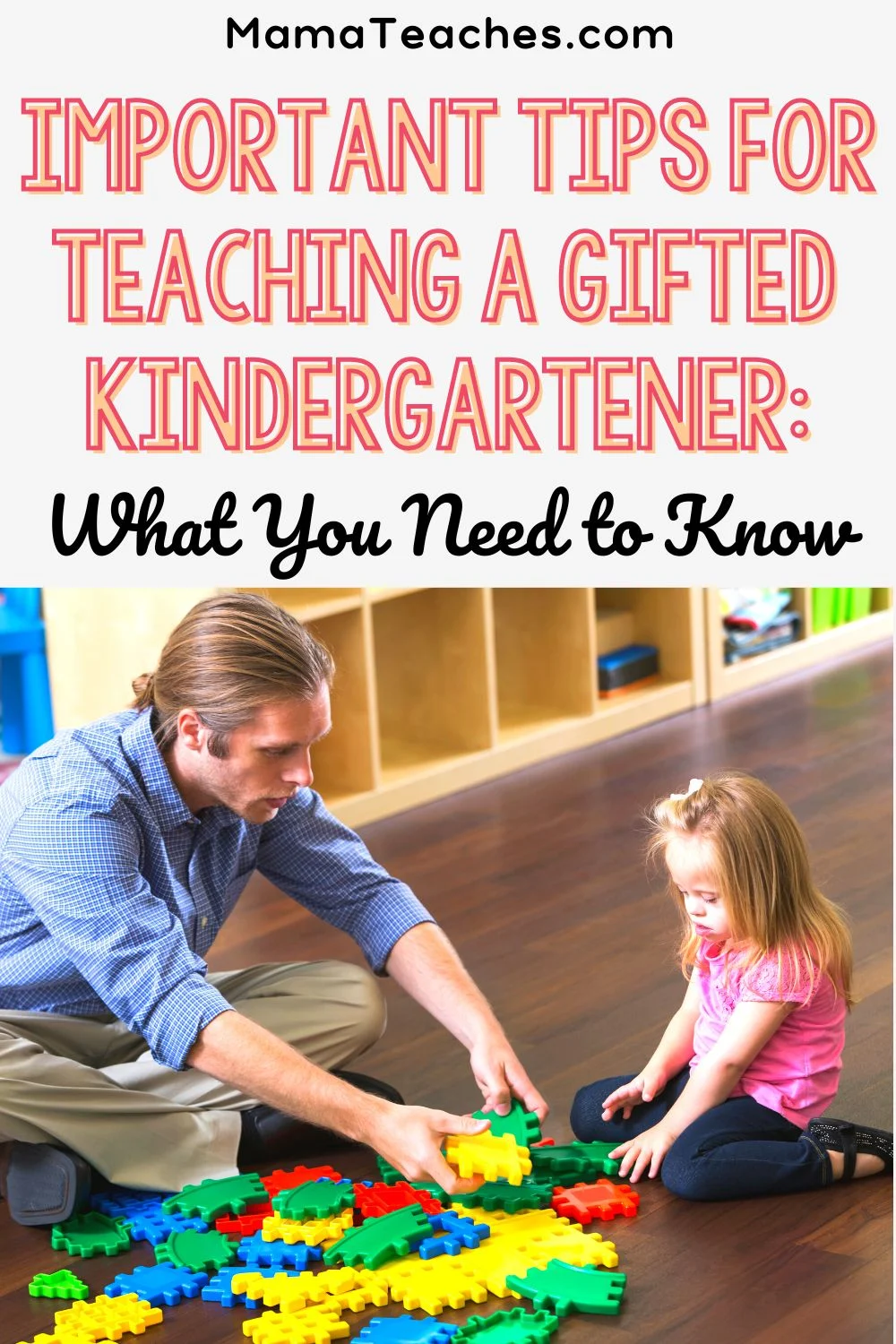
Signs of a Gifted Child
Giftedness can present in many ways, and there are no definitive signs that apply to every child, but there are some common characteristics that may indicate intellectual or creative abilities beyond what is typical for their age.
Here are some signs that a child may be gifted:
- Early language development: Gifted children may have a greater vocabulary and use more complex sentences earlier than other children of the same age.
- Curiosity and love of learning: Gifted children often have an intense desire to learn and explore new topics, even beyond what is taught in school.
- Strong problem-solving skills: Gifted children may be able to solve complex problems at a young age and see connections between seemingly unrelated concepts.
- Advanced reading ability: Gifted children may read at an advanced level for their age, enjoying books with complex themes and characters.
- Creativity and originality: Gifted children may be highly creative, expressing themselves through art, music, writing, or other forms of self-expression.
- High energy levels and intensity: Gifted children may be highly energetic and intense in their pursuits, often becoming absorbed in their interests and projects.
- Exceptional memory and recall: Gifted children may have exceptional memory and recall abilities, easily remembering details and facts from a variety of sources.
- Showing interest in more advanced topics at a young age: Gifted children may have a curiosity about more complex topics beyond their current age level. Especially topics like science or math.
It’s important to keep in mind that giftedness can present in many different ways and may not always be apparent through these signs alone.
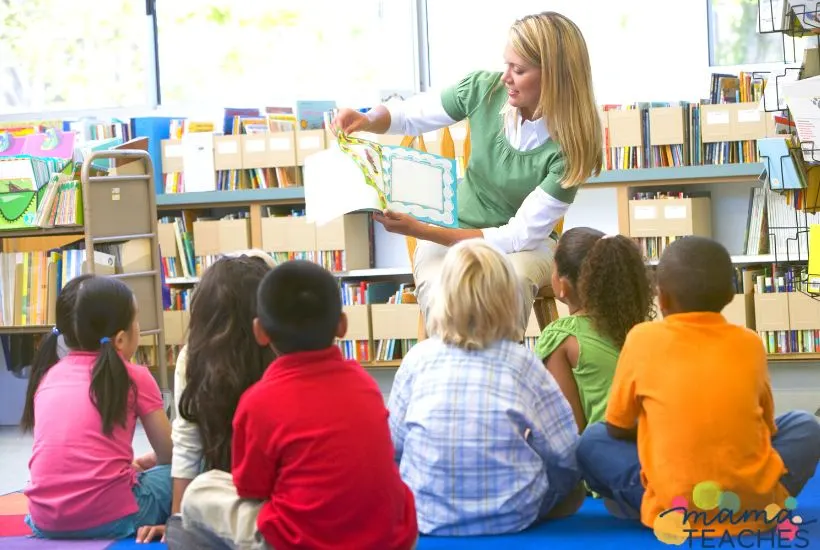
What Does Gifted Look Like in Kindergarten?
It’s important to remember that giftedness looks different in each child. But it’s typically more than just how they progress through their developmental milestones.
Some children may be incredibly advanced in some areas and slow in others.
A gifted kindergartener may show an unusually large vocabulary. They might also ask more complex questions than their peers or show a great interest in topics like science or math that would usually be taught at a much older age.
For example, while many kindergarten-age children are still struggling with the basics of reading, gifted children may already be reading above their grade level and expressing interest in longer, more complex stories.
When Do Signs of Giftedness Appear?
Something else you might be wondering is if it’s too early to know if you have a gifted kindergartener. Many schools often won’t test children for giftedness until at least 3rd grade.
However, the signs of giftedness can start to appear much earlier in life. In fact, many parents are able to recognize signs of giftedness early on in their child’s development.
Keep an eye out for those signs, and if you think your child may be gifted, then it might be time to start thinking about ways to foster and nurture their academic talents.
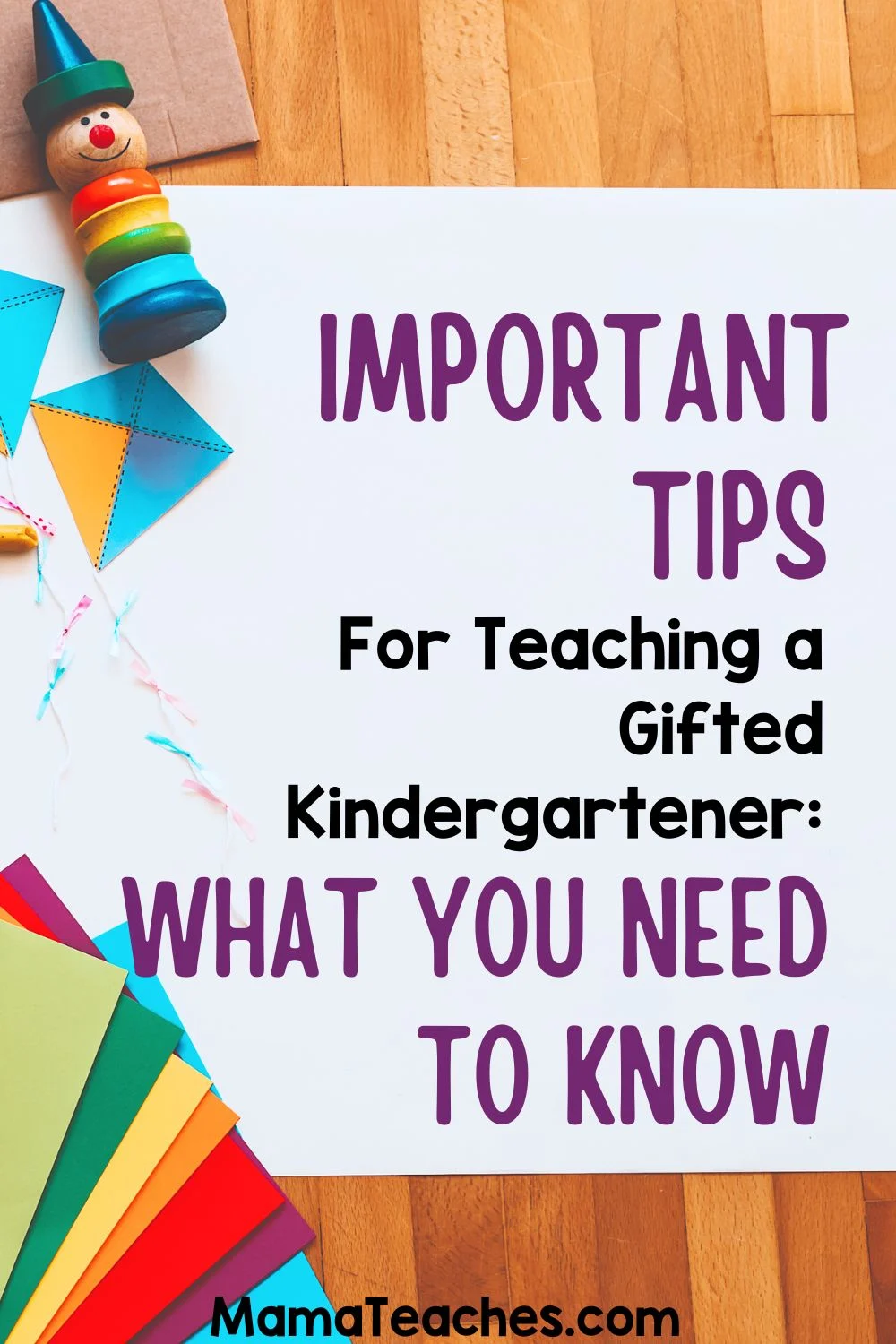
What is Gifted Education?
If you believe that your child is gifted, then you’ll want to make sure that you are providing the right type of educational environment to help them thrive.
Gifted education is designed to recognize and nurture the special gifts of gifted children, allowing them to reach their full potential in school and other areas of life.
Gifted education can look different from one school system to another.
Some schools may have gifted programs where students are given extra time or instruction outside of their regular classroom.
Others might implement enrichment activities that challenge the students and engage them on a higher level.
And if you’re homeschooling, then you have a lot of flexibility in terms of the type of gifted education program you choose for your child.
No matter what kind of education your child is receiving, you’ll want to make sure that they are being given appropriate opportunities for growth in order to foster their academic gifts.
What Should a Gifted Kindergartener Know?
If you find that you have a gifted kindergartener on your hands, you’ll want to have a solid plan in place for how to progress to the next grade.
Because gifted children often excel in one specific area, they may have learning gaps in others.
So it’s important to create a plan that challenges and nurtures their academic strengths while also making sure they fill in any knowledge gaps in other subjects.
To start off, you’ll want to get a solid assessment of what they already know.
Then you can create an educational plan. Here are some of the skills and knowledge that a gifted kindergartener should have:
- Knowledge of basic phonics, letter identification, and sight words
- Ability to read simple stories with pictures
- Recognition of basic shapes, numbers, and letters
- Recognition of opposites, sequencing, and counting to 30
- Knowledge of basic addition and subtraction
- Ability to recognize patterns
- Knowledge of basic geometric shapes
- Ability to write simple sentences.
These skills are just a starting point for what your child should know before entering first grade.
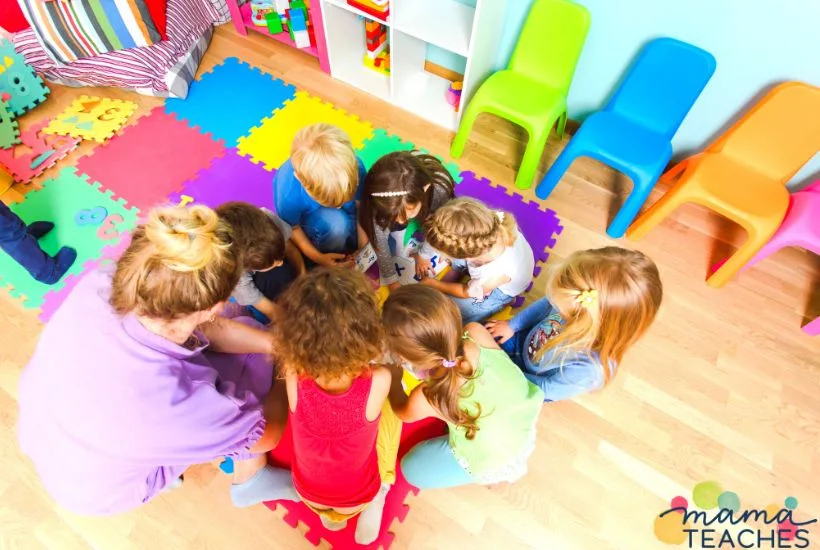
If your child excels in some of these skills, you’ll want to continue challenging them by providing enrichment activities that are tailored to their individual interests and needs.
How Do Gifted Kids Learn Best?
Like all children, gifted children have varying learning styles and needs.
It’s important to understand how your specific child learns best in order to provide the right environment for them to thrive.
Generally, gifted children respond well to a variety of different teaching styles and methods.
You can incorporate hands-on activities, visual learning, discussion, and problem-solving into your lessons to keep things interesting and engaging.
Gifted children also often respond well to technology-based learning, so you may want to incorporate educational apps or websites into their learning routine.
Finally, it’s important to remember that gifted kids need challenges in order to stay engaged in their studies.
You can provide enrichment activities that allow them to explore their interests more deeply and even let them take on some independent projects or research.
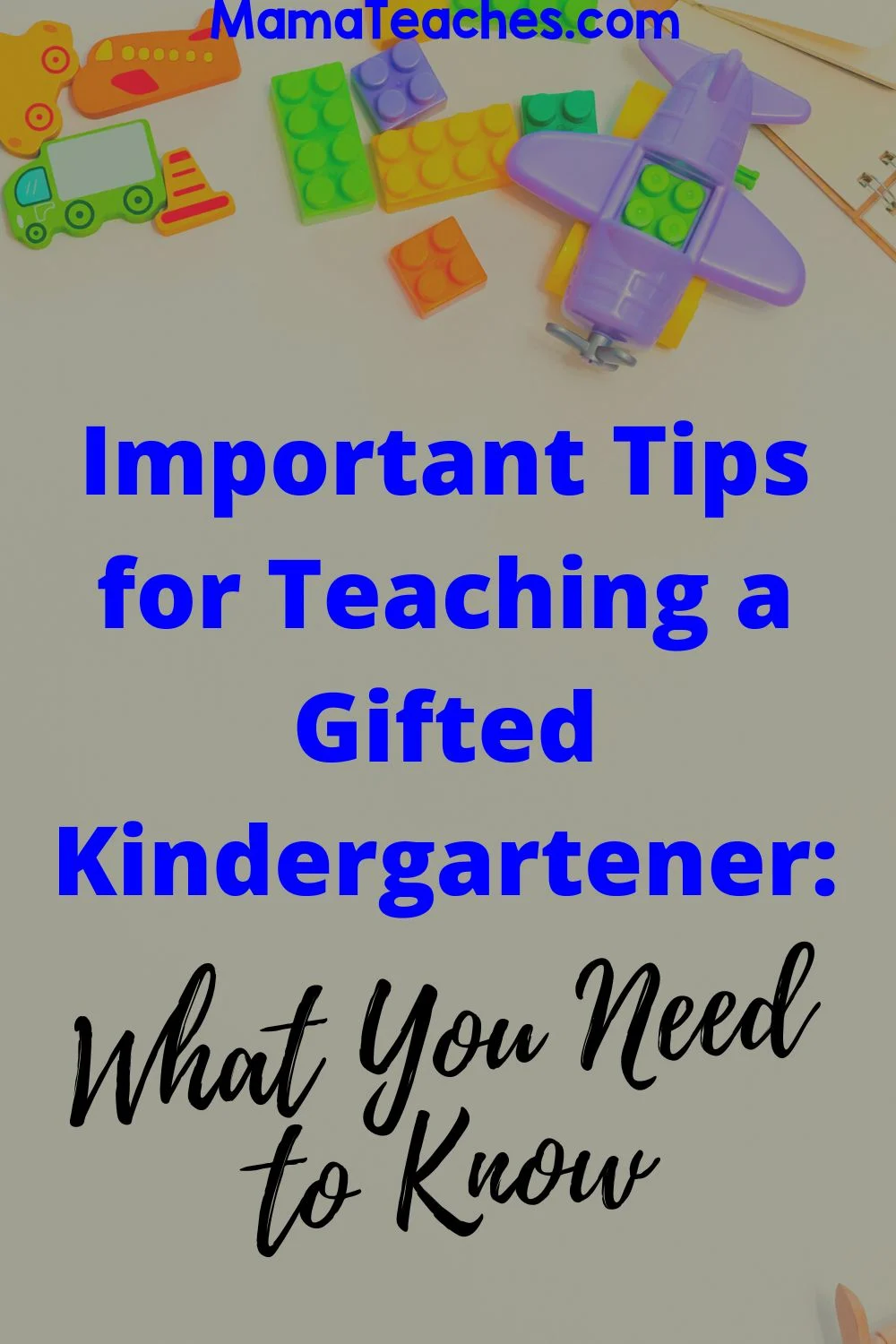
Tips for Teaching a Gifted Kindergartener
Now let’s talk about some tips that will help you provide the best possible learning environment for your gifted kindergartener.
Remember They are Still Children
Before we tackle any other tips, I think it’s important to keep in mind that although their intellectual abilities are advanced, they are still children and need a nurturing, supportive environment.
Just like any other child out there, they need guidance, structure, and positive reinforcement.
Personalized Learning Plans
The next thing you’ll want to do when teaching a gifted kindergartener is to provide them with a personalized learning plan.
This plan should take into account their interests, strengths, and needs.
You’ll want to focus on providing them with opportunities to learn more deeply in areas that they are passionate about, while also making sure they have a solid foundation of the basics.
How Do You Challenge Gifted Kindergarten Students?
A very important part of teaching a gifted child is making sure they are challenged.
You can do this by providing them with enriching activities and materials that are appropriate for their level of understanding, not just how old they are.
For example, you might give them problem-solving activities that are more advanced than what their peers are doing.
Or, if they love a certain subject such as math or science, you can introduce more complex concepts so that they really have to think critically and use higher-level reasoning to solve the problems.
You may frequently find yourself needing to go deeper into a topic or take it to a more advanced level to help make sure that they are challenged and engaged in their learning.
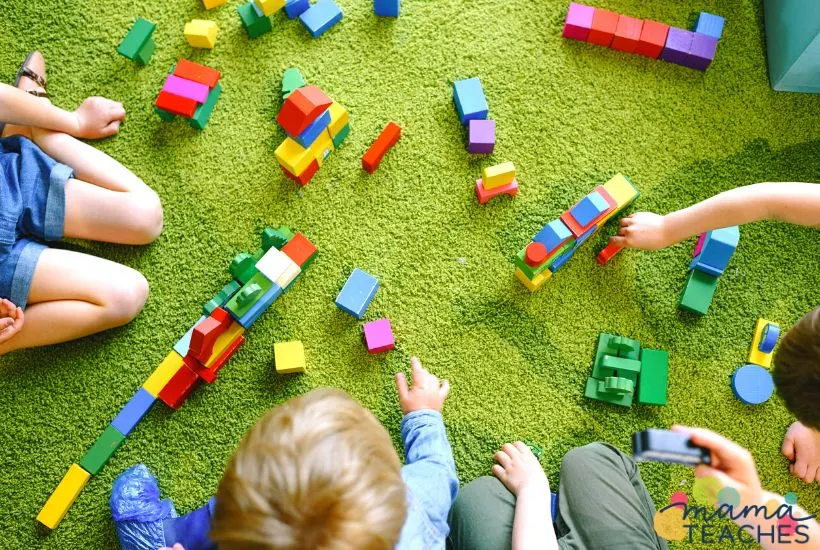
Assess Regularly
The first step in coming up with a solid plan is doing an assessment.
You need to know where they are starting academically so that you can challenge them appropriately.
After the initial assessment, you should assess your child’s progress regularly to make sure they are on track and getting the most out of their education.
You can do this through a variety of testing methods, such as timed tests, performance assessments, or even through observation and informal assessments.
It’s also important to check in with your child to get their feedback on how their learning is going and if they are feeling challenged.
Provide Open-Ended Activities
Gifted children thrive on complex, open-ended tasks that encourage critical thinking, problem-solving, and creativity.
Offer them activities that require higher-level thinking skills, such as puzzles, brainteasers, and project-based learning.
These activities will help them develop their skills while also providing the challenge they need to keep learning and growing.
Offer Opportunities for Acceleration
If your gifted kindergartener demonstrates advanced skills in certain subjects, consider allowing them to work at a higher grade level or explore topics beyond the regular curriculum.
Acceleration is an important way to meet the needs of gifted children and can also help them stay motivated and engaged in their learning.
Check with your school or district for information on how to provide opportunities for acceleration.
If you’re homeschooling, it could be as simple as finding more advanced materials or introducing topics from higher grade levels.
Encourage Exploration and Inquiry
Another way to help a gifted kindergartener thrive is to foster their curiosity by providing a rich and stimulating learning environment.
Encourage them to ask questions, conduct experiments, and pursue their interests.
Offer access to books, online resources, and educational materials that cater to their advanced abilities.
Allow them time for self-directed learning and exploration, which will help them develop their skills and knowledge more in-depth.
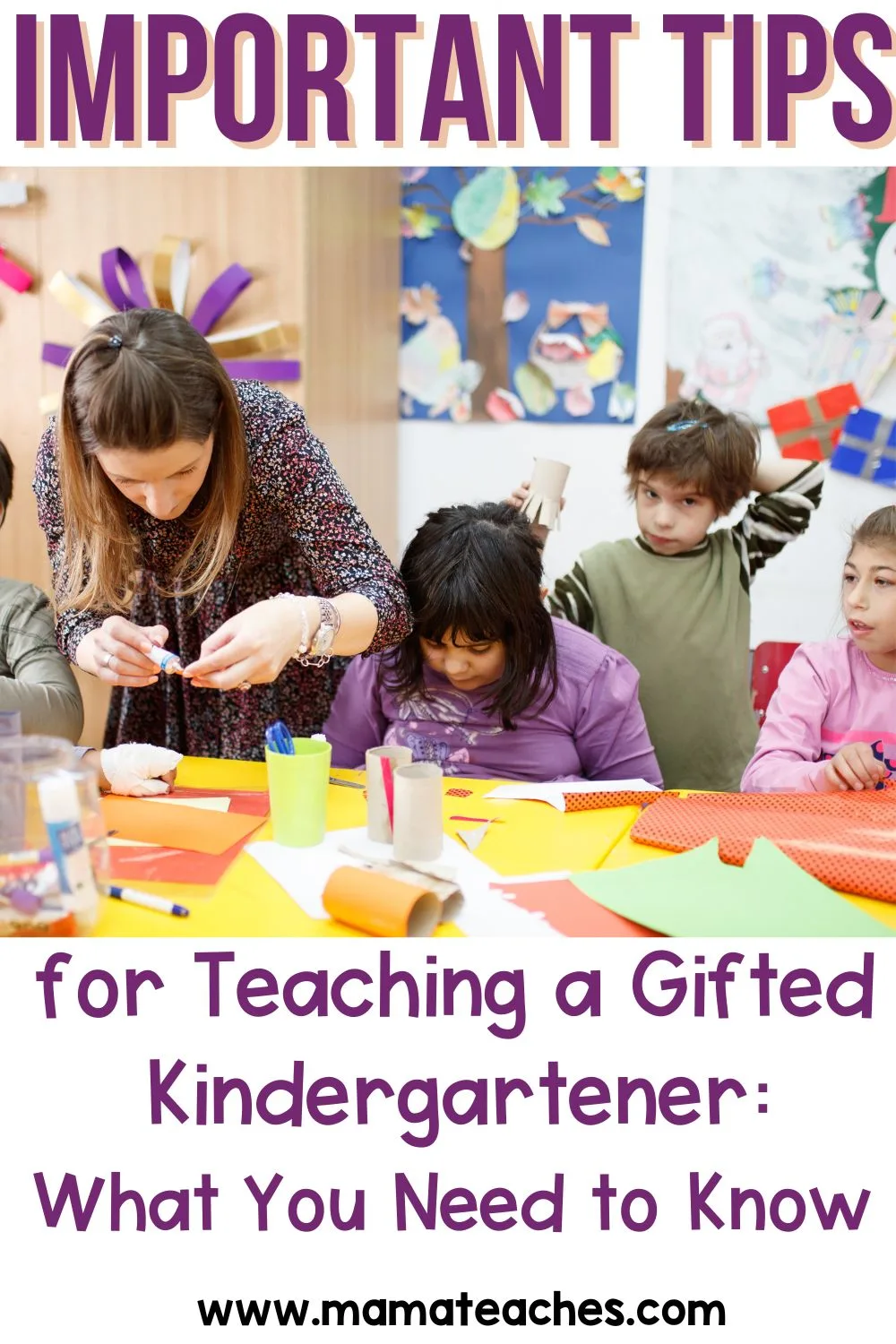
Foster a Supportive and Challenging Environment
If you’re in a classroom setting, you’ll want to create a classroom environment that supports intellectual growth and challenges the gifted student.
Encourage collaboration and discussion among peers, allowing gifted students to share their knowledge and learn from others.
You’ll also want to provide guidance and support throughout the learning process so that they stay motivated and engaged.
Let Them Move
One aspect of the classroom environment that can really help gifted students is allowing them to move as needed.
Gifted children often find movement or physical activity helpful for learning, so consider providing them with opportunities to move around.
This could be as simple as stand-up desks or allowing them to take frequent breaks during the day.
Incorporate hands-on activities such as games and experiments into your lessons, which will help keep them engaged and actively involved in their learning.
Balance Academic and Social-Emotional Needs
While it’s important to nurture their intellectual development, don’t overlook their social-emotional needs.
Gifted children can sometimes feel isolated or struggle with developing at a rate that’s different from their friends and other kids their age.
As the teacher, you can foster a supportive and inclusive classroom environment that addresses their social-emotional needs through peer interactions, group projects, and discussions about their unique experiences.
Collaborate with Parents and Other Professionals
They say it takes a village to raise a child. This is even more true for a gifted child.
If you have a gifted student in your classroom, you’ll want to make sure that you maintain open communication with the parents and collaborate with other professionals to ensure their needs are being met.
This could mean regularly consulting with parents or a school counselor, consulting with other teachers about appropriate materials and activities, discussing enrichment options, or providing access to specialized services such as gifted education programs.
If you’re homeschooling a gifted kindergartener, then you’ll want to seek out resources like the Davidson Institute to get support from other parents and educators who understand the unique requirements of gifted children.
The stronger the support network you and your gifted child have, the more successful they will be in their academic journey.
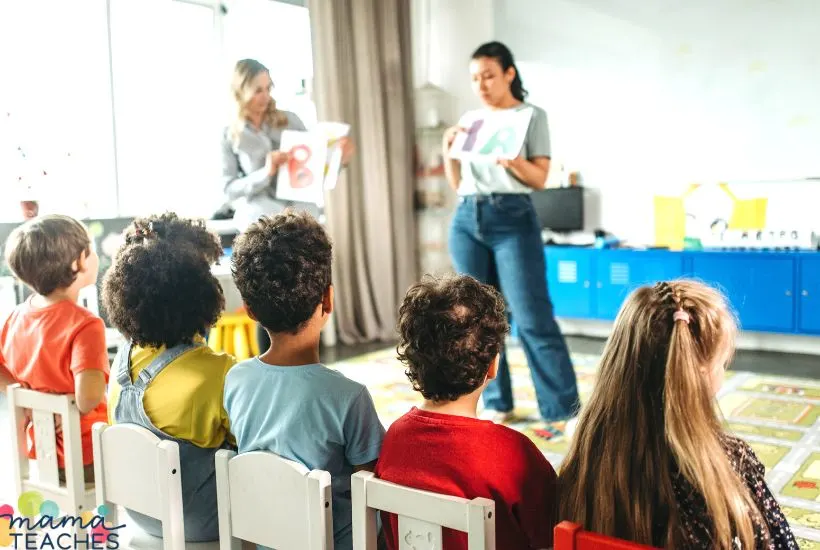
Avoid Busy Work
Another good tip for teaching a gifted kindergartener is to avoid busy work.
Gifted children are often easily bored, so it’s important to create lessons and activities that really engage them and avoid lessons or activities that don’t challenge them intellectually.
Introduce materials that are more in-depth and allow for exploration and discovery.
You’ll also want to make sure your lessons are varied and interesting enough to keep their attention, as they may lose interest quickly if the material is too easy or too repetitive.
Incorporate Brain Breaks
Like all children, gifted students need to take breaks throughout the day as well.
Incorporate brain or movement breaks into your lessons, which can help them stay engaged and focused on their learning.
Brain breaks can be anything from a few minutes of outdoor playtime, playing a quick game, doing a craft activity, having a conversation with you or another student about their interests, or just taking some time to relax and regroup.
Making sure your gifted kindergartener takes regular breaks throughout the day will help them stay energized and motivated to keep learning.
Be a Safe Space
Sometimes, what a gifted kindergartener needs is just a safe and supportive space to be themselves.
Let them know that it’s okay to make mistakes, ask questions, and express their thoughts without judgment or criticism.
Encourage exploration and curiosity in the classroom so they feel comfortable taking risks and challenging themselves.
A nurturing learning environment can go a long way in helping gifted children reach their full potential.
Find Mentors
Another great tip for teaching a gifted kindergartener is to find mentors and role models who can provide additional support and guidance.
Being gifted often means that a student stands out and is different from their peers.
Their educational journey won’t look like everyone else’s around them.
Having access to people with knowledge or experience in the child’s area of interest can be very beneficial.
These mentors can help them explore topics further, answer questions, and spark new ideas.
Also, having someone who has experienced a similar educational journey can be a great source of support.
They can provide encouragement and reassurance, and serve as an inspirational example.
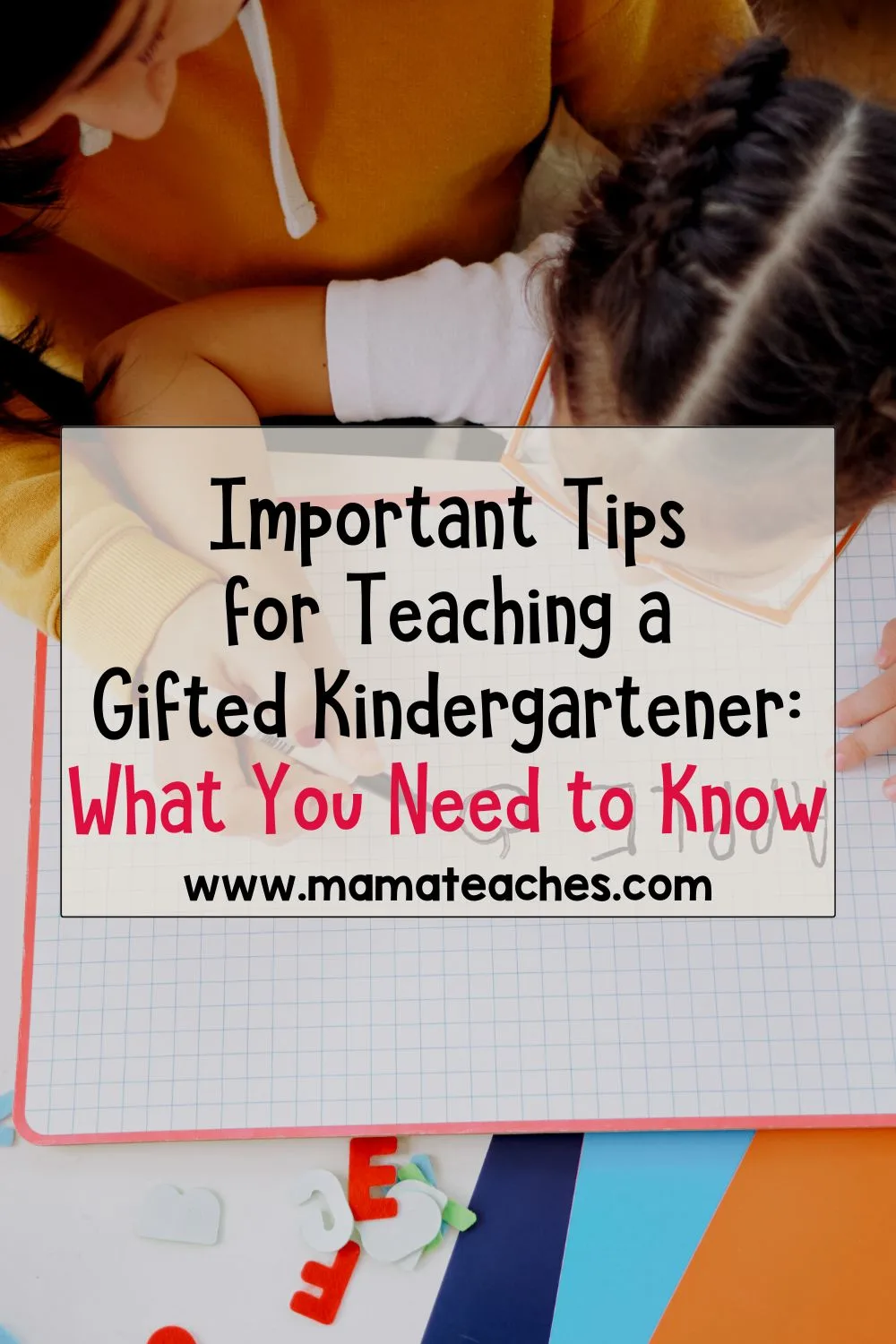
Encourage Self-Expression
Gifted children often have an intense need for self-expression.
So, it’s important to provide plenty of opportunities for them to express themselves, whether through writing, art, music, or any other creative medium.
This could involve activities such as journaling about their thoughts and feelings during the day, creating a project based on something they’re passionate about, or exploring a topic more deeply in an area that interests them.
By giving them a platform to express themselves, they can develop independence and confidence in their ideas.
Additionally, self-expression can provide them with a way to process their emotions and manage any anxieties or frustrations they may be facing.
FAQs About Teaching a Gifted Kindergartener
Here are some frequently asked questions parents and teachers often have about teaching a gifted kindergartener.
Should I have my gifted kindergartener tested?
It’s always a good idea to have your child assessed if you’re concerned about their learning abilities.
An assessment can help you understand their strengths and weaknesses, which can then be used to guide their educational journey.
How does giftedness differ from advancedness?
Giftedness is more than just being smart or advanced academically.
It involves having the capacity to think abstractly, process complex concepts quickly, and being able to make connections between various ideas.
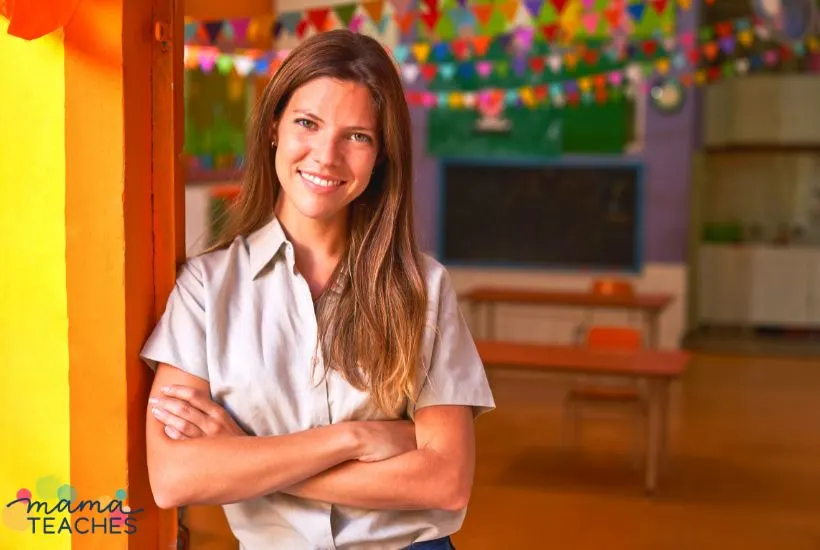
How can I support my gifted kindergartener’s emotional needs?
Supporting your child’s emotional needs is key to helping them reach their full potential.
This could involve providing a nurturing environment where they feel comfortable expressing themselves, listening to their concerns and ideas, being encouraging and supportive of their efforts, and setting realistic expectations.
Additionally, you’ll want to make sure they have access to a strong support network of parents, teachers, and mentors who understand the unique needs of gifted children.
What types of activities should I provide for my gifted kindergartener?
When creating activities for your gifted kindergartener, it’s important to offer materials that are challenging enough to stimulate their minds and keep them engaged.
Look for activities that involve problem-solving, creative thinking, exploration, and discovery, or anything else that allows them to use their abilities and tap into their unique interests.
Where can I get my child tested for giftedness?
If you’re looking for a place that offers gifted testing, you can contact your public school, or local school district, or consult with a specialist in gifted education.
Many schools provide testing services and resources that can help determine if your child falls within the range of giftedness.
If your family homeschools, there are private organizations that specialize in assessing children’s abilities and aptitude for learning.
What is the best way to support a gifted kindergartener?
The best way to support a gifted kindergartener is by providing them with an environment that will nurture their unique needs and abilities.
This includes offering materials that are challenging enough to stimulate their minds, setting realistic expectations, being understanding of their emotions, encouraging creative expression, and finding mentors who can provide additional guidance and support.
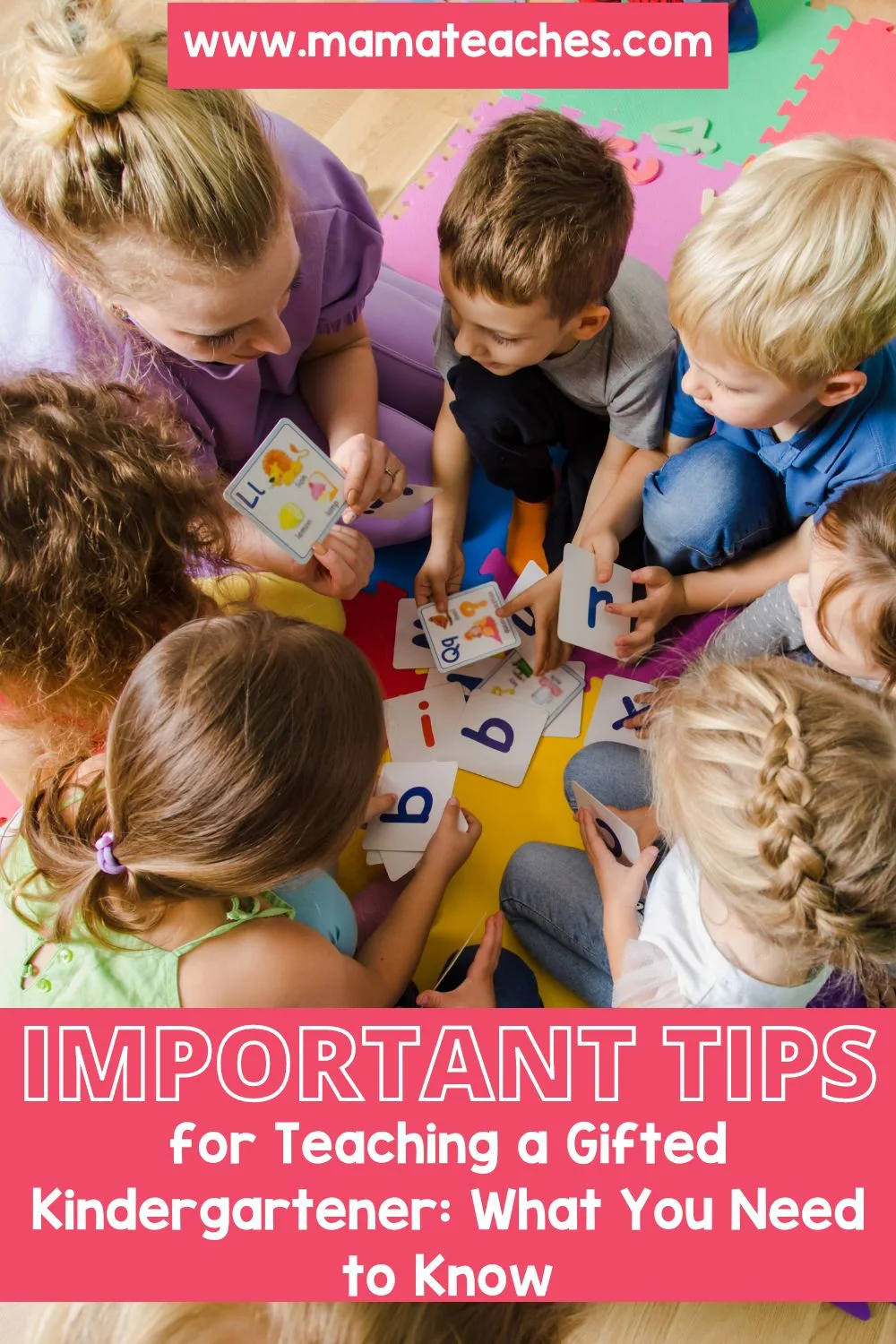
How to Teach a Gifted Kindergartener
By following these tips for teaching a gifted kindergartener, you’ll be able to create an environment that nurtures their intellectual development and helps them reach their full potential.
With the right resources and support, they will have the opportunity to grow and thrive.
Remember that all children are unique, so it’s important to tailor your approach to meet their individual needs.
Show them patience and understanding as they navigate their educational journey and give them space to explore and learn.
With the right encouragement, you’ll be able to help your gifted kindergartener achieve success in their studies.
About the Author:
Candice is a mom of 3 who has been homeschooling since 2013. She has an A.A.S. in Early Childhood Studies and cares deeply about helping other parents get the information and resources they need to help them homeschool their children with confidence. Follow along with her at A Touch of Homeschooling.
